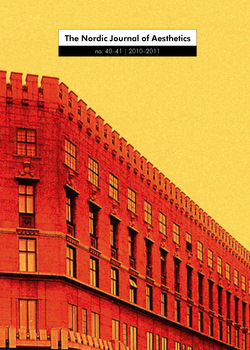Environmental Aesthetics Beyond the Dialectics of Interest and Disinterest Deconstructing the Myth of Pristine Nature
DOI:
https://doi.org/10.7146/nja.v22i40-41.5201Keywords:
Pristine nature, culture, natural beauty, disinterestedness, sublime, picturesqueAbstract
In this paper I want to scrutinize one of the key ideas within modern Western aesthetics. Beauty is often considered to derive from a virtuous disinterested attitude towards nature. This kind of view has been advocated by thinkers such as Shaftesbury and Kant in the beginning of the so-called aesthetic turn in philosophy. The problem with this view is that it presupposes that nature exists by itself before human intervention in a kind of ideal pristine state. My hypothesis is that this ideal of pristine nature constitutes one of the underlying problems of many contemporary environmental discourses.
Downloads
How to Cite
Issue
Section
License
Authors who publish with this journal agree to the following terms:
- Authors retain copyright and grant the journal right of first publication with the work simultaneously licensed under a Creative Commons Attribution License that allows others to share the work with an acknowledgement of the work's authorship and initial publication in this journal.
- Authors are able to enter into separate, additional contractual arrangements for the non-exclusive distribution of the journal's published version of the work (e.g., post it to an institutional repository or publish it in a book), with an acknowledgement of its initial publication in this journal.
- Authors are permitted and encouraged to post their work online (e.g., in institutional repositories or on their website) prior to and during the submission process, as it can lead to productive exchanges, as well as earlier and greater citation of published work (See The Effect of Open Access).




